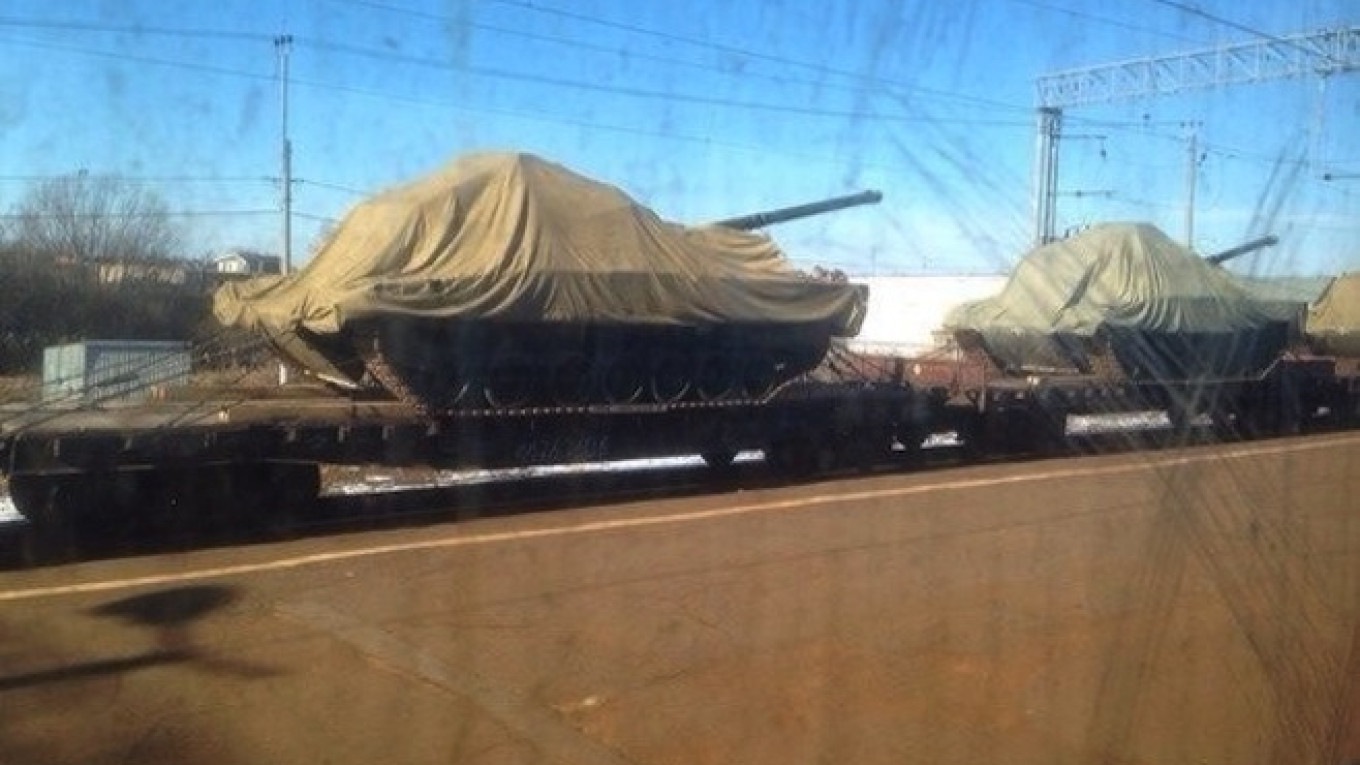Russia's brand-new T-14 Armata main battle tank, which is set to be officially unveiled to the public at a Victory Day parade on Red Square on May 9, has reportedly been sighted readying for the ceremonies outside Moscow.
Photos of tanks resembling the Armata tank design hit the Russian internet on Monday.
According to Russian military blog military-informant.com, which published the photos, the tanks, covered in tarps and resting on a train carriage, were gathering with other military units in Alabino, outside Moscow. There they will rehearse their movements for this year's Victory Day celebration, which marks 70 years since the defeat of Nazi Germany.
The Armata is part of a massive rearmament program costing hundreds of billions of dollars that aims to restore some of the military might Russia lost after the collapse of the Soviet Union.
A video taken from a cell phone and uploaded to YouTube on Monday shows what appears to be the Armata tank. The video shows a junction near the factory that produced the tank, Uralvagonzavod, and a tank testing range.
The tank's seven wheels give it away as an Armata. Russia's current tanks are all based on variations of old Soviet tank chassis designs and have six wheels.
Another recognizable feature is the long and boxy turret that resembles modern Western tank turret designs such as the U.S. M1 Abrahms and German Leopard 2. Older Russian tanks have more bulbous turrets.
The new tanks, officially designated the Armata T-14 main battle tank, is built on a chassis known as the Armata Universal Combat Platform. Armata will serve as a common base for a series of armored combat vehicles, according to manufacturer Uralvagonzavod.
The chassis will be used to develop new armored personnel carriers, self-propelled artillery, and even a fully automated drone tank, the company has said. The common chassis will make production and maintenance easier and cheaper, according to Uralvagonzavod.
A Message from The Moscow Times:
Dear readers,
We are facing unprecedented challenges. Russia's Prosecutor General's Office has designated The Moscow Times as an "undesirable" organization, criminalizing our work and putting our staff at risk of prosecution. This follows our earlier unjust labeling as a "foreign agent."
These actions are direct attempts to silence independent journalism in Russia. The authorities claim our work "discredits the decisions of the Russian leadership." We see things differently: we strive to provide accurate, unbiased reporting on Russia.
We, the journalists of The Moscow Times, refuse to be silenced. But to continue our work, we need your help.
Your support, no matter how small, makes a world of difference. If you can, please support us monthly starting from just $2. It's quick to set up, and every contribution makes a significant impact.
By supporting The Moscow Times, you're defending open, independent journalism in the face of repression. Thank you for standing with us.
Remind me later.


